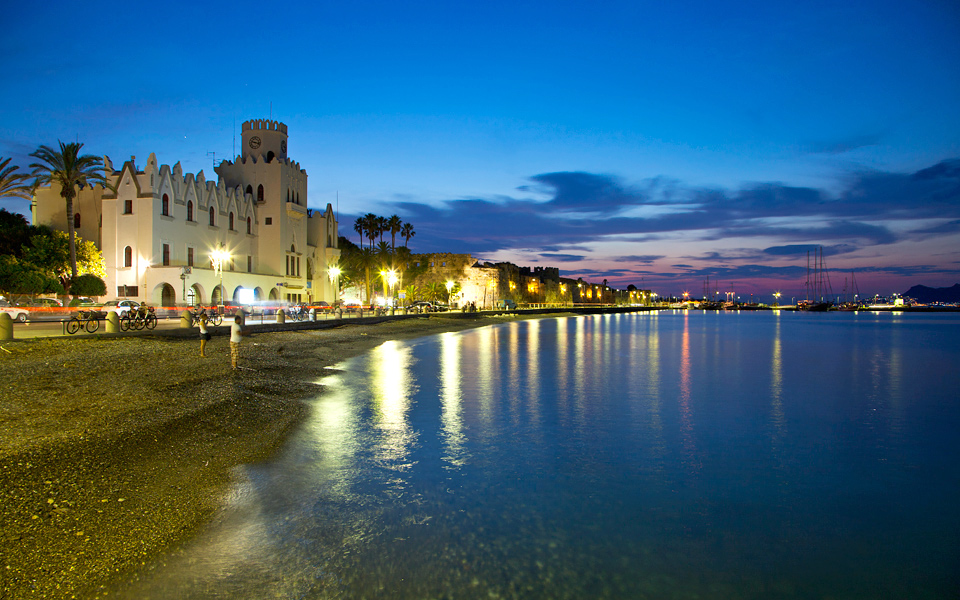1. THE TOWN
Enjoy endless walks in the main town and observe the island’s history through its monuments dating from antiquity, the Byzantine period, Ottoman and Italian rule, as well as the time when it served as a center for the Knights of the Order of Saint John..
A stroll around town reveals a host of sights to behold including mosques, Italian-era buildings, ancient structures, narrow alleys, the marina with the yachts, and the palm-tree boulevard with street artists.
Make a pit-stop at the plane tree of Hippocrates, where, according to tradition, the father of medicine held discussions with his students. Also, look out for the Mosque of the Loggia, stroll through the ruins at the ancient agora, and enjoy the western archaeological zone, whose important structures and monuments include Thermes, the ancient stadium, the Ksiston of the ancient gymnasium, mosaics, and the Nymphaeum building. Once the sun goes down, Exarhia, the bar district in the city of Kos, offers a vibrant nightlife.
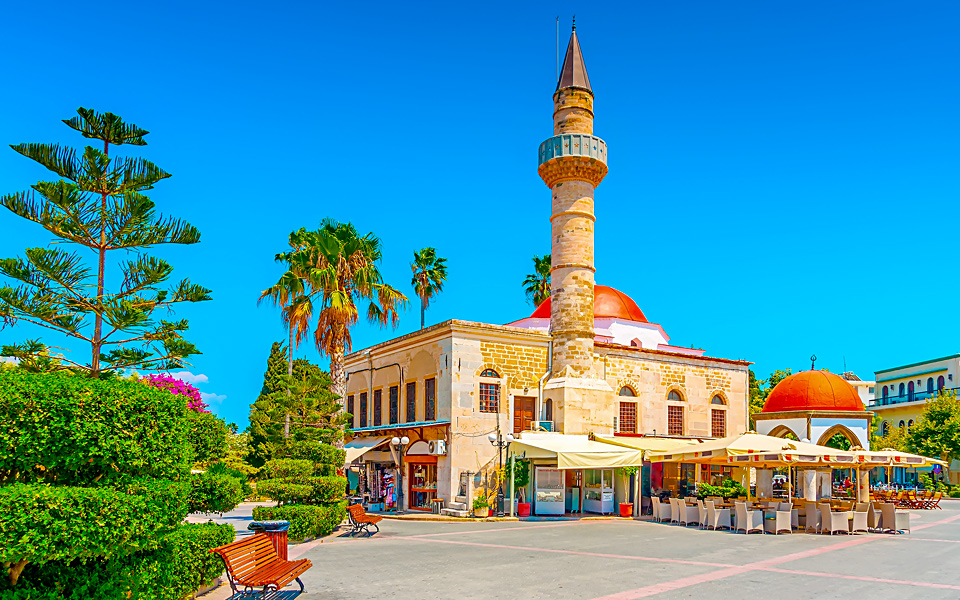
2. ELEFTHERIAS (LIBERTY) SQUARE
The entire history of Kos may be summed up by a look around Eleftherias Square, the city’s most central spot and one of the most attractive. Consider sitting at one of the square’s cafes and enjoy the town’s modern rhythm against a timeless backdrop. The Public Market (Dimotiki Agora) and its arcades, the Ottoman Defterdar mosque and its fountain, the ancient city’s wall, and the buildings dating back to Italian rule – one of which nowadays houses the archaeological museum – are all located here, highlighting the multicultural dimension of Kos in all its glory.
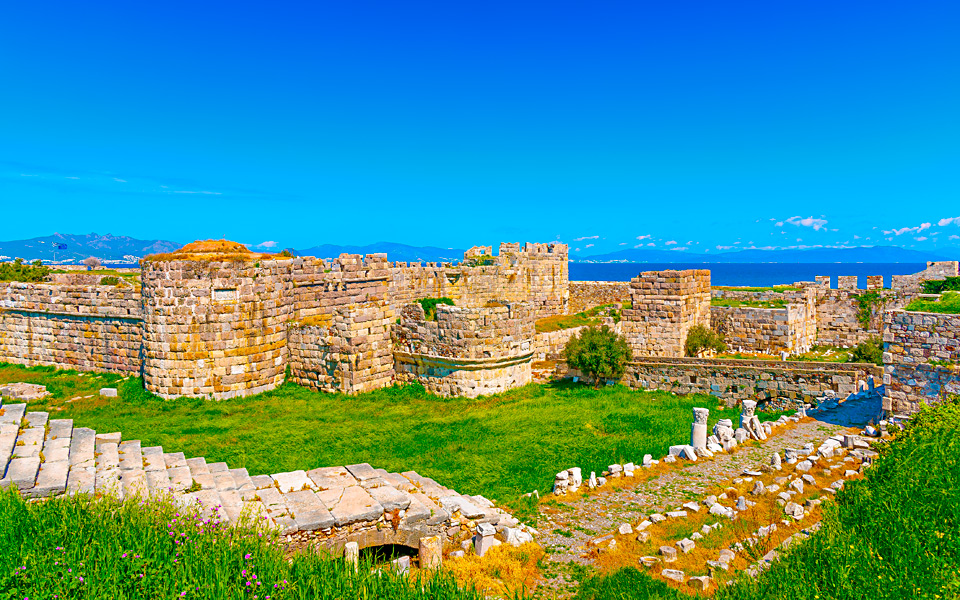
© Olga Charami
3. NERATZIA CASTLE
Cross the small bridge and pass through the gateway of the castle that dominates the port’s eastern section. The Knights of the Order of Saint John in Kos built the castle in the late 14th century. Also occupying St Peter’s castle in neighboring Bodrum, Turkey, the Knights of Saint John controlled the crossing towards the Holy Land during the Crusades. See the castle’s towers and arcades, the coats of arms of the Grand Masters, architectural elements of the ancient city of Kos, and enjoy the sensational view.
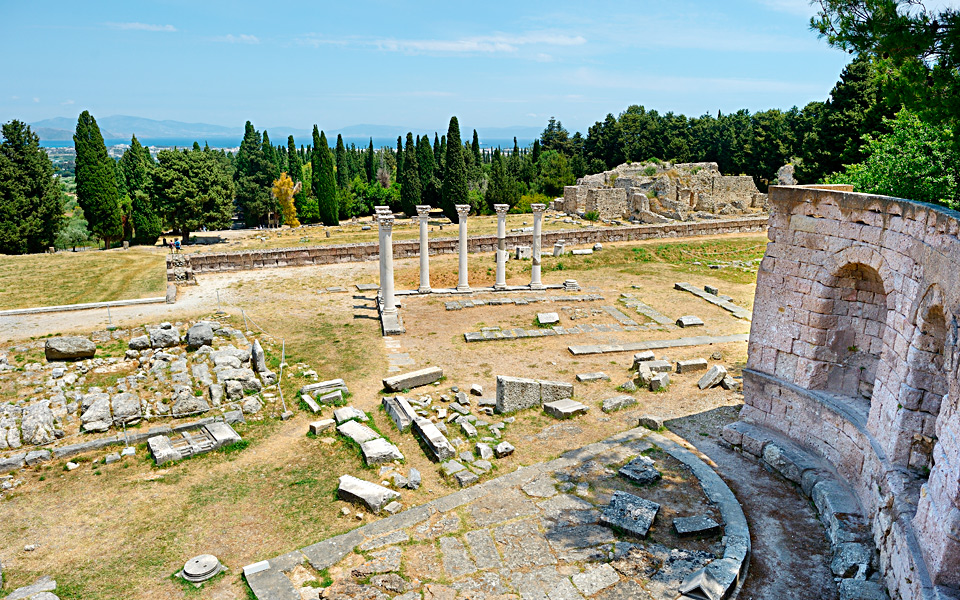
4. ASKLEPION
Expect to see doctors from all over the world taking part in re-enactments of Hippocratic Oath recitals here. This is not surprising. The structure stood as the most renowned Asklepion – treatment or healing center – during antiquity and hosted, as is believed, the Medical School run by ancient Greek physician Hippocrates, the father of Medicine. Patients here were not offered therapy through divine intervention and the like, as was the case at the other well known Asklepions, but, instead, through scientifically based medical methods.
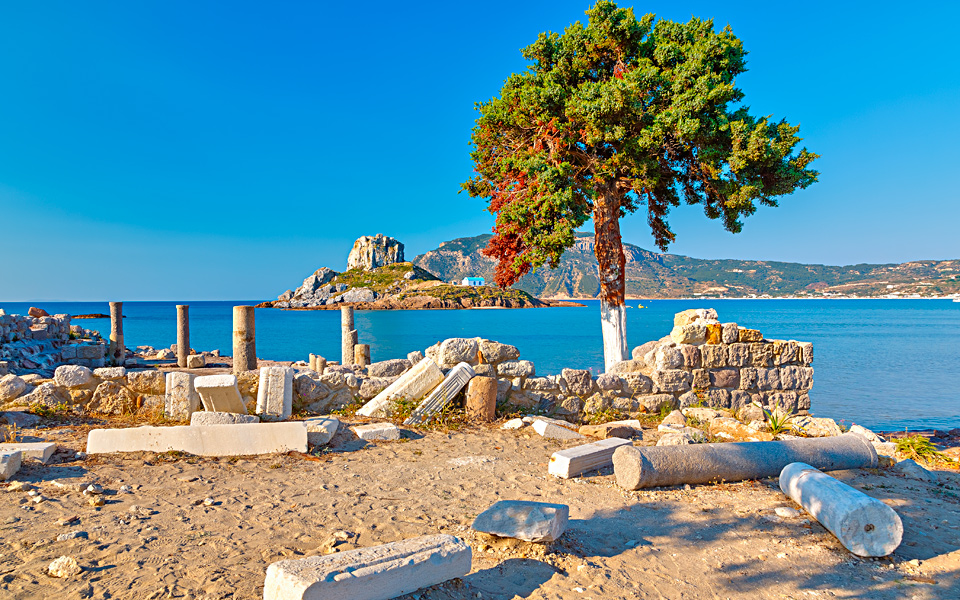
© Olga Charami
5. AGIOS STEFANOS
This picture-perfect spot is a favorite postcard theme among tourists, making it the island’s most widely traveled image around the world. You, too, can enjoy swimming at the location’s two beaches, situated next to the archaeological site featuring the remains of two early Christian basilicas (5th – 6th century), named Agios Stefanos. Gaze out towards the islet of Kastri and feel the energy transmitted by the foundations of these old churches and the Baptistery, the columns of the sanctuary, and the mosaic floors.
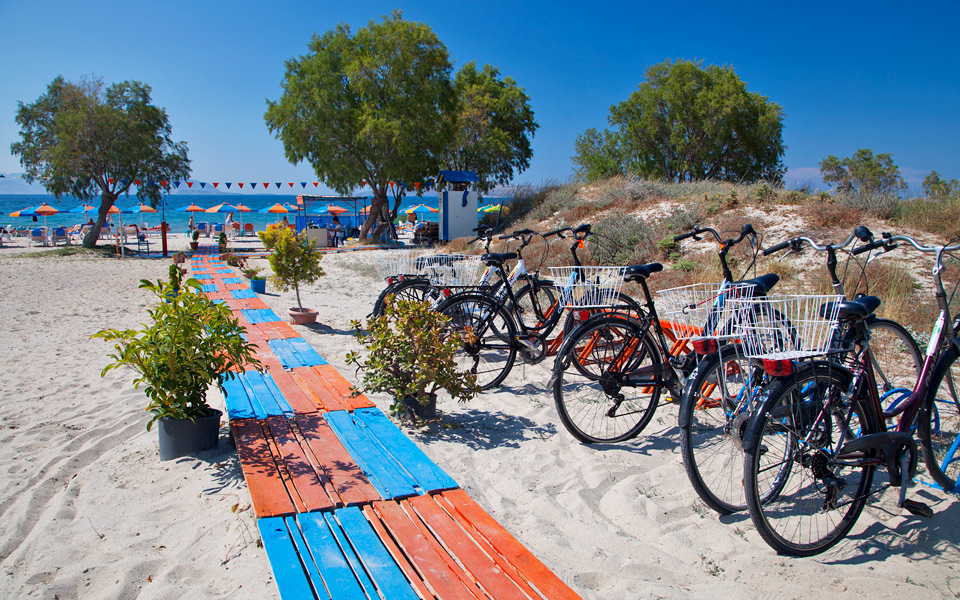
© Olga Charami
6. BICYCLE RIDES
It can be difficult to find bicycle-friendly places in Greece. Kos is an exception, which is why we recommend bicycle rides for visitors here. A cycling lane runs by Zouroudi beach. Another bicycle lane stretching 13k crosses the city and reaches Psalidi at one end and Faros beach at its other end. Bicycle parking facilities exist all over the island, including beaches, so do not hesitate to cycle out beyond the city. You won’t be alone. Most visitors cover the island on bicycles, usually dressed down to just their swim suits. Better sun protection is strongly advised, however, as the sun on the Greek islands can be harsh.
7. EBROS THERMES
Ebros Thermes, on the island’s southeast coast, offers alternative hot water spring swimming. Apart from one small section at its start, this beach is not organized and is located at the base of an impressive cliff. Visitors can choose to either swim at the beach or the small lake filled with thermal waters of 30 to 50°C – ideal for skin diseases, rheumatism, and arthritis. The descending dirt road is usually a demanding task for cars. Donkey rides are offered all the way down to the beach.
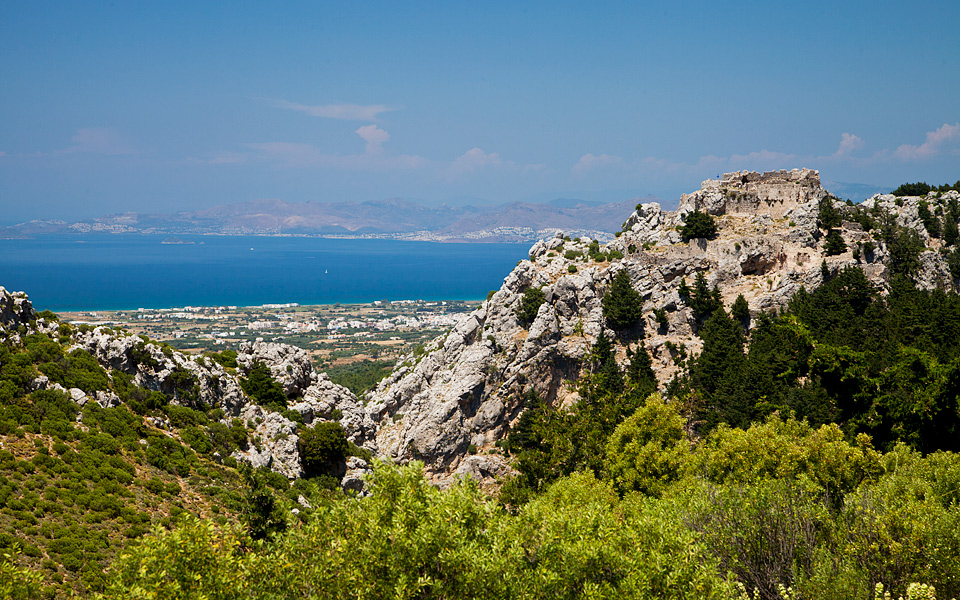
© Olga Charami
8. PALIO PYLI
Moving away from the coast, the road heading up the slopes of Mount Dikeos leads to Palio (old) Pyli. The medieval village has disappeared under the rich vegetation, but several routes lead to two impressive churches, Taxiarhon (Archangels) and Panagias (Virgin Mary) tis Kastrianis.
The route up the steep rock leads to a castle built in the 10th to 11th century by the Byzantines and reinforced by the Knights of Saint John. It served as shelter for residents during many Ottoman raids.
The view from this elevated point is spectacular, taking in Kos, Kalymnos, Pserimos, and Turkey.
Intrepid adventurers, fit enough to walk further, will find a small taverna nestled away in a cool and completely serene spot on the mountain’s other peak.
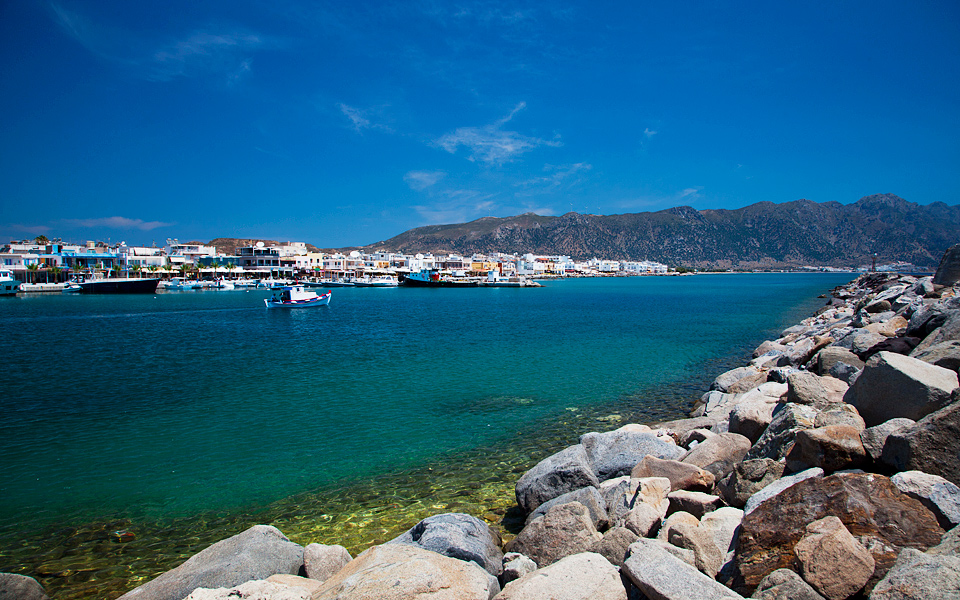
© Olga Charami
9. ANTIMAHIA CASTLE AND KARDAMENA
Make sure to seek out Antimahia castle, one of the island’s most impressive tourist attractions. The overwhelming silence of this spot covered in wild flora and with a view of the strait between Kos and Nisyros makes it ideal for a pleasant walk.
Kardamena, located below Antimahia castle, is one of the most cosmopolitan spots on Kos and has earned worldwide renown thanks to its beautiful beaches, proximity to the airport and its little port with an esplanade, perfect for strolling. It has restaurants, cafés and some of the island’s biggest hotels and offers a wide range of services, including vehicle rentals and others.
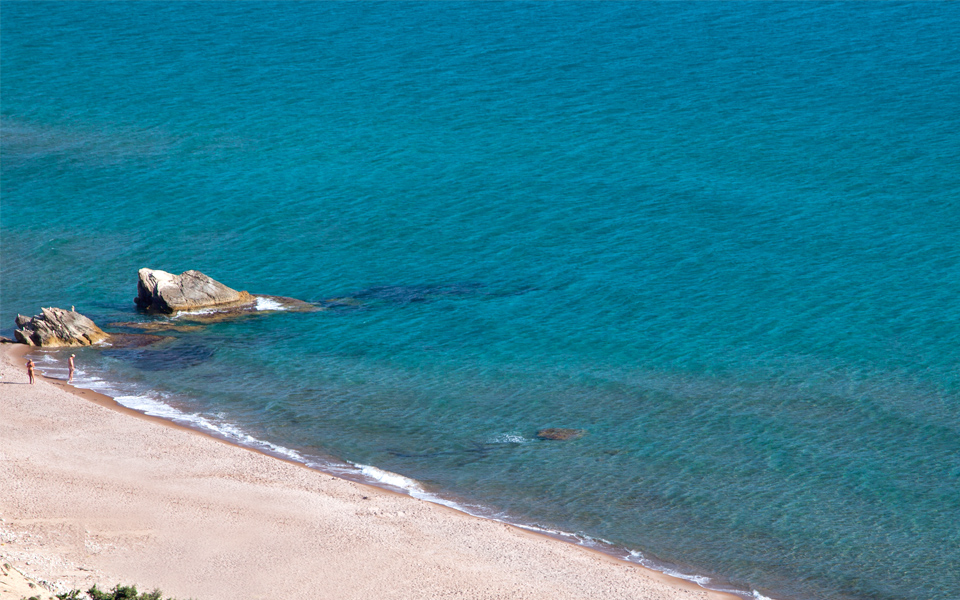
© Olga Charami
10. BEACHES
Kos, a popular destination for holidaymakers from abroad for many years, has fully adjusted to the needs of tourists. Some beaches are equipped with small ramps for easier access into the sea, without needing to step over pebbles. Beach bars, deck chairs, beach umbrellas, and water sports are offered all over, while the number of services offered to beachgoers is continuously rising.
Kardamena and Tigaki rank as the most popular beaches. Psalidi and Agios Fokas, both close to the main town, are also popular. The entire stretch of coastline from Tigaki to Marmari and Mastichari is also an attraction. In the southwest, the Agios Stefanos area beaches, as well as a number of relatively quieter spots, Kamila, Kohilari, Limnionas, Magic, Paradise, and Markos, are all on offer. To the far west, the small hidden beaches with the cedar trees at Agios Ioannis Theologos, and the impressive Cavo Paradiso beach at the end of a cluster of dirt tracks, both sit as wonderful surprises.

